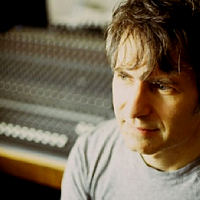|
1) E-mail me at mrstamey@gmail.com. Put "Mixing" in the subject line. Tell me, in general terms, how you recorded the music, what type of recording gear you used, and what kind of mixing you think it needs.
2) I'll write back and, if appropriate, tell you how to either a) ftp rough mixes to me in mp3 form or b) mail me a DVD-R of the individual tracks of one of the songs.
3) I'll listen to the music and then give you an idea of what the cost might be. Typically, a mix of a fully produced song will take 4-6 hours, including an hour of revisions. I have a discount "indie" mixing rate (for musicians who are not on a label), the cost is usually $250-$300 per song. I ask that you do some premixing prep work and cleanup, and this will help keep the cost down. Sometimes I'm able to give you a project rate for mixing a whole record.
4) Next, you have to get the multitrack recording to me. You can send me audio files on DVD-R disks, or on a Firewire or USB-2 hard drive. (Please be sure to back up the files first.) I'll also need a deposit of half the estimate at this point.
5) I'll send you, via the Internet, mp3s of the first-draft mixes (at the 2-3-hour stage). Sometimes I'll send a few variations on each song, especially if I am suggesting any edits for your consideration. You listen and then send me e-mail notes (as detailed or as general as you like) about changes. For example, you might say "harmonies up on 3rd line of last chorus," "turn up cello's high C# at 2:41 and 3:18," "try more low oomph on snare." (Another quarter of the balance is due at this point. If it's going to take more time than estimated to make changes, we discuss this at this point, so there are no surprises.)
6) I'll review your comments and send you a second-draft round of revised mp3s. You send me a list of further tweaks if need be.
7) You have the option to come here for the final stage of mixing revisions, especially if there is a whole record being mixed. Usually one or two days is enough for hands-on, in-person changes. (Of course, this involves further travel, lodging, and studio costs.)
8) When we're done, upon receipt of the balance due, I'll send you a set of final DVD-R disks with high-resolution (NOT mp3) mixes, ready for mastering. These will sometimes include a vocal-up or vocal-down alternate version (to give the mastering engineer some options) plus other variations as needed.
| 






